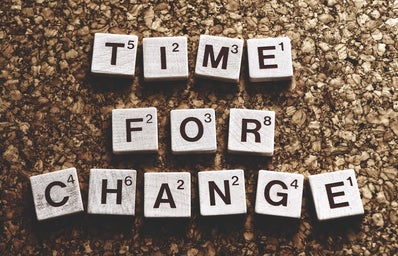Before beginning this article, I want to acknowledge my privilege as a white woman that previously was a member of a sorority. I intend to not overpower or silent POC and those affected by Greek Life, rather emphasize them and remind us of why we still have to abolish Greek Life at American University.
Over the summer at American University, two accounts (@blackatamericanuniversity and @exposingauabusers) began to post anonymous stories from students regarding sexual assault and racism. The two accounts began to grow as stories on the actions at school began to pour in. Members of Greek Life began to be mentioned. Stories of sexual assault, rape, gaslighting, racism, and horrifying experiences at Greek organizations were also, mostly, posted.
Ultimately, this led to a conversation and call to abolish Greek life in American. Both sororities and fraternities began to be held not only for their actions, but the history of institutional racism and rooted problems in the organizations represented. However, where have we gotten since the summer?
While we may like to believe that things have changed since they have not. Only three out of the nine sororities and thirteen fraternities have disaffiliated. While some organizations are bringing new leadership positions, pledging to amplify POC voices, and some members have disaffiliated from still present sororities and fraternities, Greek Life still must be abolished. What will it be like when we go back to campus in the future? Just because we aren’t at school right now going to parties and events, does not mean the issue has been solved. Just because we aren’t having the same conversations we had this summer means everything is valid again.

We are simply sweeping it under the rug more. To reach the change we preach of eliminating sexism, racism, and other issues the system must be forever demolished. Racism, sexism, and other issues in Greek life are an institutional problem. Looking at organizations, the more “ranked” they get the whiter they become. Looks are, regardless of what we preach, taken into consideration during recruitment. POCs are placed in videos and previews of organizations ultimately seen as tokens to create a “diverse”, but false vision of what it is like. These examples are only the surface level of the stories that have been silenced by powerful organizations, colleges, and people to protect social calendars and lifestyle.
Tracing back to the creation of the first sororities and fraternities around 1776 at the College of William and Mary, the education system was highly elite and a reflection of the homogeneous setting. Thus, members in these organizations reflected the broader student population at the time; all white. Racist practices, rules, and policies that shaped society and the education system enabled not only the creation but expansion of white fraternities and sororities. Black students were restricted by racist laws ultimately not allowing them to attend higher education. Even with access over the years, full and fair opportunities were not presented.
At the same time, students of color were excluded by colleges from the general participation in campus life. While there is little to no evidence of POC wanting to join the early fraternities and sororities, the organizations ensure that it would be not possible to join otherwise. Some even created racially exclusive policies called “white clauses” otherwise stating that only students who were white could and would be considered. This history of racism thus created racial uplifts and exclusions of a powerful system still present in the 21st Century
Racism is not the only issue. According to the National Institute of Justice, 25% of sexual assault victims were sorority members. Women in sororities are 74% more likely to experience rape than other college women. These statistics are horrifying. The sexual assault and rape stories of thousands are far from proof of why we need to end these. These statistics are only the tip of an iceberg of thousands of cases not reported. Fraternity members are 300 percent more likely to commit rape than their non-Greek brothers. This is not a claim that all members of fraternities are predators and that all sorority members will be victimized. Rather, I am here to share the facts that the system is broken and flawed. Racism and sexual assault along with the information shared here is only a glimpse into the countless problems in Greek Life.

Williams College, considered the #1 Liberal Arts school in the US, has banned fraternities since 1962. Participation in organizations involves penalties including suspension or expulsion from the college. Another example is Bowdoin College. Students have abolished fraternities since March 1997 and phased them out by May 2000. If you haven’t noticed already, these bannings of Greek Life have occurred over 10 years ago. Clearly, this has been an issue for far too long. Williams and Bowdoin’s college are just two examples of countless other schools that have taken this path.
Abolishing Greek Life is not impossible. Rather, it is necessary. While we have put in years of work into our leadership positions, philanthropy, and creating a strong group of people, this additional time spent in Greek Life has strengthened racist, gendered, and sexist practices. A problem ignored only threatens injustices around it.
We need to be realistic. We need to ask ourselves hard questions. We need to do better. American University and its students are some of the most aware individuals. By letting these problems slide, we are worsening the problem.
If you are still a member of a sorority or fraternity at American, I urge you to take this information seriously and rethink it. Work with the friends gained from Greek Life and after abolishing, urge others to do the same. While it seems that disaffiliating won’t make any change if one starts and another follows the chain of change begins. Together, one by one, we can dismantle institutional racism and change the statistics of sexual assault.
As MLK said, “Our lives begin to end the day we become silent about the things that matter”. We must remind ourselves that no one achieved anything by being quiet. When you speak up for what matters, it empowers someone else. ‘If you change yourself, you will change your world. If you change how you think, then you will change how you feel and what actions you take. And so the world around you will change.’
It is (still) time to abolish Greek Life at American University.
Sign this petition to Abolish Greek Life at American University
Sources: 1, 2, 3, 4, 5, 6, 7, 8, 9, 10, 11, 12, 13, 14, 15, 16
Photos: Her Campus Media



